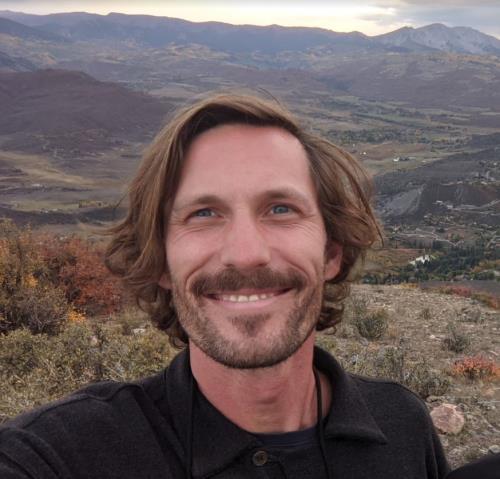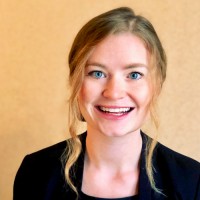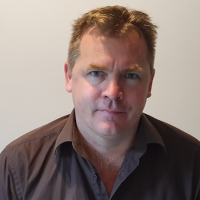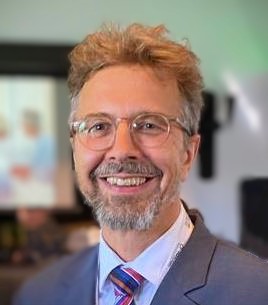WSIS ALFM C7: E-Environment
WMO/ITU/UNEP
Session 411
Digital Public Goods for Climate Change Adaptation
In January 2022, the Digital Public Goods Alliance (DPGA), International Telecommunication Union (ITU), and the World Meteorological Organization (WMO) issued a call for weather, climate & hydrological information datasets to be made open and freely available as digital public goods.
This session on Action Line C7 will highlight the importance of digital public goods. WMO will present the State of the Climate in 2021 including the weather and extreme climate. DPGA will highlight why relevant datasets are needed as digital public goods, the setbacks caused by a lack of data, and tangible steps that can be taken to help improve access to data. ITU will present the critical role of data in identifying connectivity gaps to help first responders make informed decisions and communicate in times of disasters. Speaker from MET Norway will present their digital public goods that provide open weather data. Finally, FAO will share their use of open data, such as in the FAO Weather and Crop Calendar, to help climate change adaptation efforts relevant to weather and climate services.
The objective is to bring much-needed attention to digital public goods in hope that it will help open more datasets, assist in the discovery of existing open datasets, and build confidence in utilizing these datasets for climate change adaptation efforts.

Tristan Copley Smith is the Co-Founder and Co-Director of Carbon Catchers (Documentary on Climate Tech) and OSBeehives (Open Source Beehive Health Monitoring Solution). Besides, he is a Filmmaker, Social Entrepreneur, Communications Specialist, and a Journalist, working at the intersections of climate change, storytelling, and open source entrepreneurialism. In fact, he began his career as Wikileaks' Internal Video Producer, and went on developing award-winning short documentaries and reportage with institutions like NASA, and publications such as Al Jazeera and the Guardian. For many years, he has been ceaselessly working to promote the open source agenda and generate a positive impact on the planet. Furthermore, by founding three eco-tech companies, he gained the title of MIT Innovator Under 35 in 2019. These experiences showcase his unique insights into the world of climate startups and how to tell their stories.

Claire Ransom is an Assistant Project Officer in the Climate Monitoring and Policy division of the WMO. She assists with global and regional State of the Climate reports, particularly on improving the communication of complex climate science through engaging and interactive StoryMaps. As a student of international development, Claire is also passionate about the intersections between climate change and sustainable development and is the co-author of WMO report Climate Indicators and Sustainable Development: Demonstrating the Interconnections.

Jameson joined the Digital Public Goods Alliance in 2020 and serves as Senior Advisor, Communications and Programs. In this role, Jameson leverages nearly 15 years of experience working at the intersection of policy and international development. Prior to joining the DPGA, Jameson's work focused on broadening access to education and healthcare. With Doctors Without Borders, Jameson managed projects in Afghanistan and South Sudan, and before that worked in the Amazon region of Ecuador. Jameson holds a Master's of Public Policy from McGill University in Montreal, Canada, and focused his studies on government adoption of frontier technologies.

Paul Hamilton is a Senior GIS Expert for the International Telecommunication Union’s (ITU) Telecommunications Development Bureau (BDT). He has been working on the Disaster Connectivity Map project since 2019, and the ITU Transmission Map project since 2012. Paul also researches and publishes the annual Africa Telecom Transmission Map, and has worked as a short term consultant for network operators in Africa as well as financial institutions and industry organisations. He previously worked as the Telecom Research Manager at World Markets Research Centre, and holds a degree in Geography and International Politics from Keele University, UK.

Dr. Jørn Kristiansen holds a PhD in meteorology from the University in Oslo. Since 2005 he has worked at the Norwegian Meteorological Institute (Met Norway). First as a research scientist in numerical weather prediction (NWP). In 2010 he became the leader of Yr – Met Norway's online weather service, in collaboration with the Norwegian Broadcasting Company (NRK). Dr. Kristiansen was integral in establishing postprocessing of the NWP data for more localized, accurate and user-centric weather forecasts. Yr is built on user-oriented dissemination of open and free data, recently approved as a digital public good. Between 2011 and 2015 he was head of the NWP division of the R&D department. He contributed to the notable achievement of establishing the unique collaboration between Estonia, Finland, Norway and Sweden on an operational high-resolution ensemble prediction system for more reliable weather forecasts. As Director for the Development Centre for Weather Forecasting, he has since 2016 pushed NWP to Science for Services, organizing and leading the complete automated information chain for weather forecasting, from observations to end-users and open data, and from research to operations. Dr. Kristiansen has several national and international duties, including member of the WMO Polar Prediction Project Steering Group, Executive Council's Panel of Experts on Polar and High Mountain Observations, Research and Services, and representative on polar and high-mountain with the Research Board. A recent interest is interdisciplinary research and end-user focused co-production that is crucial to significantly advance the provision of forecasts and their uncertainties.

Karl has over 30 years of experience developing and supplying IT solutions & services.
He is currently working at the Food and Agriculture Organization where he is leading the development of the flagship Hand-in-Hand geospatial platform which brings together technical units from across the Organization and integrates data from the United Nations system, international organizations, NGOs, space agencies. public data providers and the private sector.
Previously Karl has delivered IT solutions at the global, regional, and national scale in the domains of animal health, livestock, fisheries, crops, plant genetics and pests, food security, climate, trade and markets, soil, land, and water.
He has also worked in telecoms, merchant banking and the space industry.
Karl is a Cloud Architect, Scrum Master, PRINCE2 project manager and an ITIL practitioner.
He graduated from the University of Leeds with a bachelor's degree in Computational Science and completed a master’s degree in Intelligent Knowledge Based Systems at Cranfield Institute of Technology.
-
 C7. ICT applications: benefits in all aspects of life — E-environment
C7. ICT applications: benefits in all aspects of life — E-environment
This session, focusing on digital public goods and climate change adaptation, is related to the WSIS Geneva Plan of Action Action Line C7, e-environment. Without adequate open data to properly inform decisions, efforts to respond to climate change will fall short of their potential. While climate change is quite well understood in terms of broad global average numbers, much less is currently known about the expected specific impacts at local levels. In many parts of the world, lack of adequate observations is one of the main reasons for this. It is impossible to adapt to what cannot be predicted, and what is not adequately observed cannot be predicted. For this reason, the Digital Public Goods Alliance supports the World Meteorological Organization’s call for a renewed commitment to free and unrestricted exchange of weather, climate, and hydrological data and specifies that this should include more openly licensed datasets aligned with the Digital Public Goods Standard.
-
 Goal 9: Build resilient infrastructure, promote sustainable industrialization and foster innovation
Goal 9: Build resilient infrastructure, promote sustainable industrialization and foster innovation
-
 Goal 13: Take urgent action to combat climate change and its impacts
Goal 13: Take urgent action to combat climate change and its impacts
-
 Goal 14: Conserve and sustainably use the oceans, seas and marine resources
Goal 14: Conserve and sustainably use the oceans, seas and marine resources
-
 Goal 15: Sustainably manage forests, combat desertification, halt and reverse land degradation, halt biodiversity loss
Goal 15: Sustainably manage forests, combat desertification, halt and reverse land degradation, halt biodiversity loss
There is an urgent need to combat and mitigate the devastating impacts of climate change, which has significant impact on many of the Sustainable Development Goals. The limitation in the availability and dissemination of high-quality data is a hindrance for making informed decisions and stifling technical innovation, including the development of digital solutions with the potential to address critical climate change adaptation needs, particularly in least developed countries (LDCs).
https://www.itu.int/en/ITU-D/Environment/Pages/Climate-Change/Climate-Change-Adaptation-CoP-Report.aspx